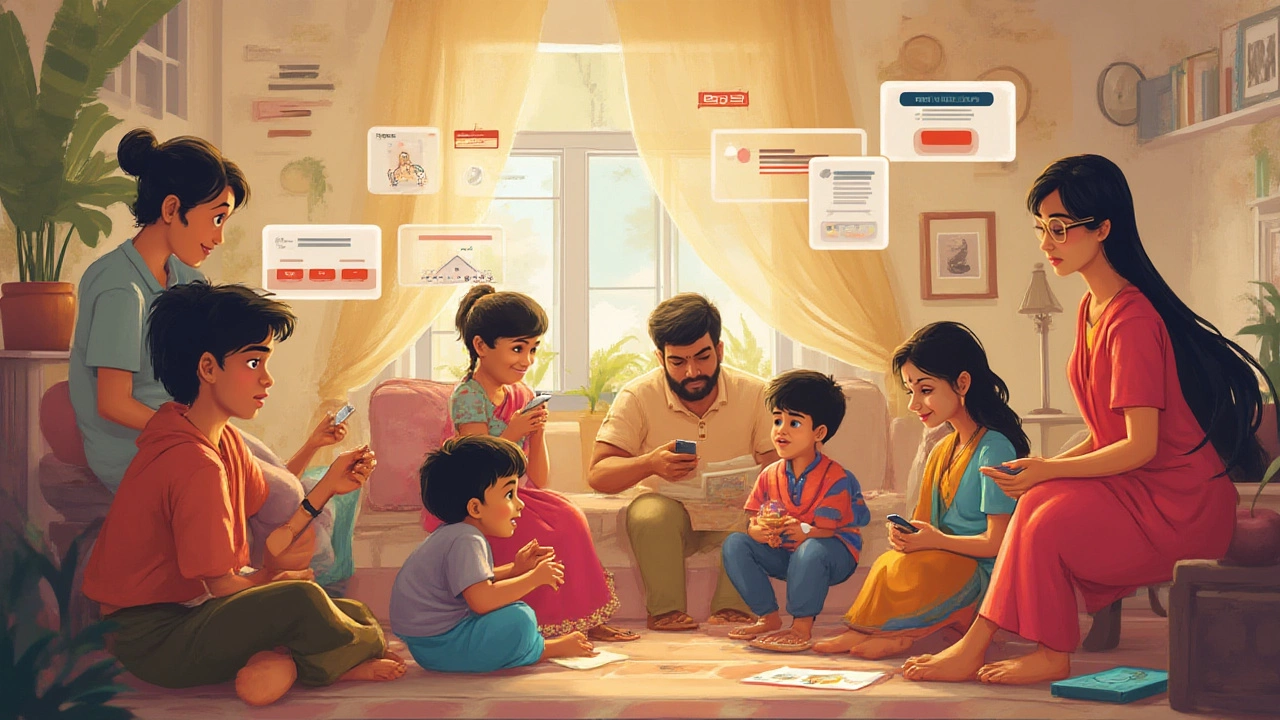Picture this: your friend just landed a new job because she picked up Python through an online course, and your neighbor's teen is prepping for college with lessons from her favorite digital tutor. E-learning isn’t just a trend anymore—it’s the main road for anyone hungry for knowledge, new skills, or a career upgrade. But with hundreds of digital classrooms vying for your attention, picking the best e-learning platform feels a bit like shopping for shoes online: endless options, but only a few truly fit. So, which one actually suits you?
The Giants: Udemy, Coursera, and LinkedIn Learning
Let’s kick things off with the heavyweights. If you’ve typed "best e-learning platform" into Google anytime since 2015, you’ve seen Udemy, Coursera, and LinkedIn Learning pop up. Each plays the game a little differently.
Udemy boasts over 210,000 courses. Anyone can create a class, and that means you can find a course for almost any topic—yes, even cheese sculpting or how to make latte art! There’s a lot of treasure mixed with, well, not-so-premium content. What’s cool is they often run sales, so you can snag a course for as little as $10. You get lifetime access to bought courses, and there’s a refund window if you don’t vibe with the teacher.
Now Coursera’s a different animal. Courses are university-backed. You want that Stanford certificate or Google’s seal on your résumé? This is the place. Many classes are free to audit (yes, you can watch videos for zero dollars, but you pay for grading and certs). They’re known for specialization tracks and proper degrees. Coursera collaborates with Amazon, Google, IBM, and top schools—so you get the real deal. But you’ll need to pace yourself, because their courses run on schedules, and assignments have deadlines.
LinkedIn Learning sits right at the career intersection. If you’ve ever scrolled through job ads and clicked "Learn this skill," chances are you landed here. You get access to 21,000+ courses with a subscription—think Excel, coding, soft skills, management tips. Bite-sized videos fit into lunch breaks, and the slick tie-in with your LinkedIn profile means badges show up for recruiters to see. They also serve up personalized recommendations, based on your job interests. No wonder 87% of Fortune 100 companies use it for corporate training!
The bottom line: Udemy is the quirky open marketplace, Coursera offers university power and professional tracks, and LinkedIn Learning blends personal development with career visibility. Which one’s best? Depends on your style: binging random topics, chasing brand-name certs, or climbing the corporate ladder.
Platforms for Specialization: Khan Academy, edX, and Pluralsight
Sometimes, you’re not window shopping—you know exactly what you need. Maybe it’s SAT math, data science, or deep-diving into software development. Here’s where platforms like Khan Academy, edX, and Pluralsight shine.
Khan Academy started as a math help channel and exploded into a global nonprofit classroom. It’s free (yep, 100%). They cover K-12 subjects, test prep, science, art history—even some college-level stuff now. Highlights? Interactive practice, friendly explanations, and no pressure to buy anything. In 2024, they reached 150 million registered users and are now used by half the schools in the U.S.
edX is for those who still want that university stamp but hate traditional tuition bills. Their partners include MIT, Harvard, Berkeley—you know, the kind of schools your uncle brags about. You can "audit" any course for free, or pay if you want a certificate. Learners love their "MicroMasters" and "Professional Certificate" programs, which are short and affordable but still deep and challenging. They even offer online degrees in things like computer science and business.
Developer geeks and IT folks swear by Pluralsight. You get curated "learning paths," skill assessments, and real-world projects. Their platform is packed with hands-on labs and up-to-minute content—so if there’s a new JavaScript framework out, they’ll have a fresh course. It's for folks who love structured, tech-oriented learning without fuss.
So, if you’re saying, “I just want to master Calculus” or “I need to get into AWS fast,” skip the generalists and go with a specialist. The right platform feels like a home base, guiding you, not distracting you with unrelated topics.

Interactive and Alternative Approaches: MasterClass, Skillshare, Duolingo, and Others
E-learning isn’t just about spreadsheets or Python. There’s a whole world for creative brains, hands-on learners, and global travelers who want to pick up real-world skills outside of degree programs.
Ever wanted to write an Oscar-winning script with Aaron Sorkin or cook with Gordon Ramsay? That’s MasterClass. Their model is simple: world-famous instructors, super high-quality video, and a monthly subscription for all-access passes. Classes are storytelling-focused, loaded with personality. You can binge lessons like Netflix, learning at your own pace without assignments or tests. It won’t give you a cert for your LinkedIn, but it could inspire your next creative project.
Skillshare is like MasterClass’s hip cousin and focuses on creativity, design, business, photography, and more. Courses are crowd-sourced, so you get content from pros and passionate amateurs alike. Project-based lessons mean you learn by doing. Their "community projects" and class discussions make learning feel social. In 2025, it added thousands of new classes on AI art and podcasting—reflecting what creative folks care about most now.
Trying to become fluent in Spanish, Japanese, or Klingon (seriously)? Duolingo makes gamified language learning addictive. Streaks, daily goals, leaderboards, and cheerful reminders keep you coming back. They’ve now added live speaking practice and community competitions. Don’t expect to write a university thesis after a year on Duolingo, but you’ll keep a conversation going at your next overseas trip.
Platforms like FutureLearn (for UK learners) and Codecademy (coding bootcamp feel) fill specific niches. And for kids, Outschool and BYJU’S blend animation with interactive group classes, catering to every age and interest.
Bottom line: if you crave hands-on or artsy learning, or get bored by textbooks, the "alternative" crowd gives you the freedom to learn on your own terms, with the power of a global community behind you.
Important Questions to Ask Before Picking a Platform
Let’s be real—no one platform is best for every learner. Here are the big questions to ask before you hit "Sign Up":
- What do you want to achieve? (A certificate, a new job, a side hobby?)
- Do you learn better from lectures, projects, quizzes, or live discussion?
- What’s your budget? (Some sites are free, others charge monthly or per course.)
- How much time do you have—will you binge-learn or study when you can?
- Do you need lessons in your native language or subtitles?
- Will you need proof of learning (like a certificate or badge)?
Don’t fall for the fanciest videos or biggest course libraries. A massive catalog is useless if the teaching style puts you to sleep. And while certifications can boost your résumé, employers will care more about what you actually know and can do. If you get stuck in analysis-paralysis, try a free trial or audit a class. Trust your gut—if a platform feels motivating and makes you want to finish the next lesson, that’s the one. In 2024, a survey by Class Central found that just 18% of e-learners completed the courses they started. So, pick a platform that keeps you curious and comes back for more because that’s what makes the difference.

Tried-and-True Tips for Thriving in the E-Learning World
Let’s face it—signing up is easy, but actually learning is the hard part. It’s you, maybe your cat, and your laptop at 11 p.m. Here’s how real people stick with it when the excitement fades:
- Schedule a "class block" in your calendar, like it’s a real college course.
- Set tiny, daily goals instead of big, vague ones. Checking off small wins boosts motivation.
- Take notes by hand or jot summaries after each lesson. It helps you remember more than passive watching.
- Join course discussion boards or social media groups for your platform. Sharing questions (or struggles) beats silent suffering.
- Mix learning with real-world action. If it’s coding, build a mini project. If it’s language, order food in that language next time you’re out.
- Embrace imperfection. Forget trying to "master" every detail—focus on making progress, not perfection.
- Don’t hesitate to ask your instructor(s) for help, even if it feels awkward. Most are happy to guide motivated learners!
E-learning isn’t going to slow down. In fact, latest projections from HolonIQ say the global market hits $475 billion by 2028! That means newer, cooler platforms will keep appearing, promising you the moon. Instead of chasing trends, get clear on what you love, how you thrive, and which platform makes learning feel not just doable, but fun.
Start with your goals, match them with a platform’s real strengths, and take the first lesson. Soon enough, you’ll be the person who says, "I learned that online," and actually means it.





